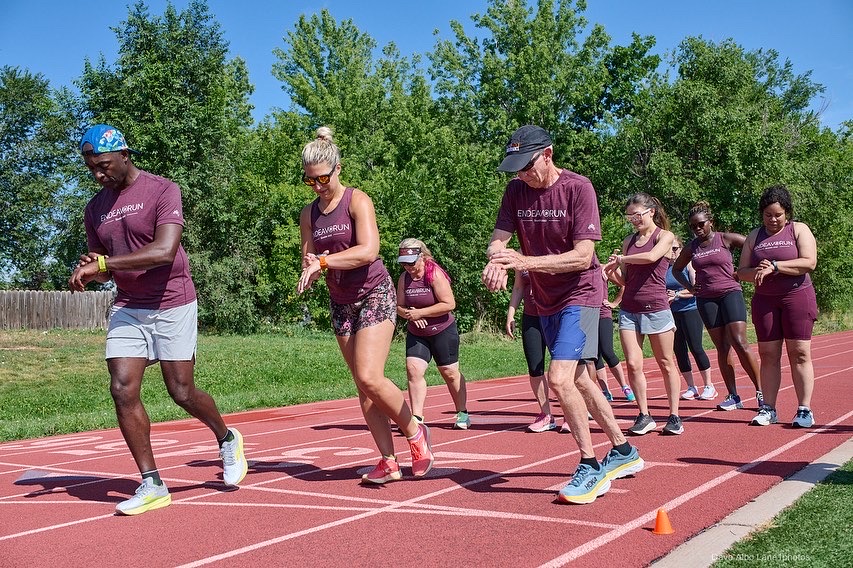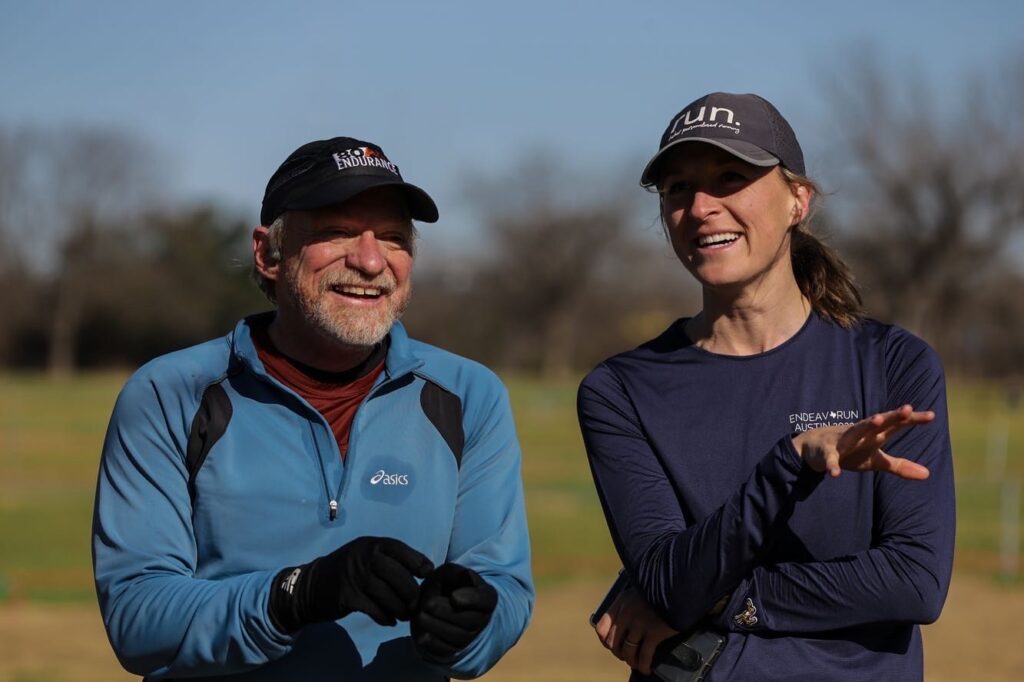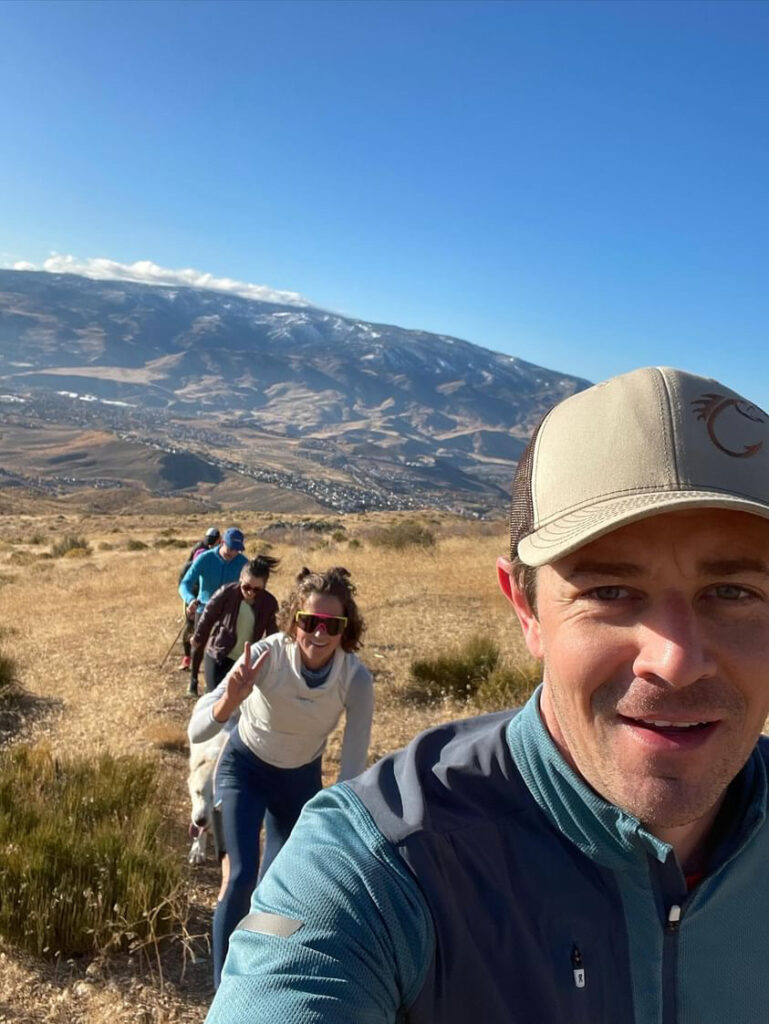Think back to moments on the playground and you quickly realize running is something you’ve been doing since you were a kid. It was play – so hiring someone to help us do it as adults might feel a bit silly. However, when we think about running as a sport we recognize that it requires certain skills and technique to become proficient, and suddenly seeking the support of a coach isn’t so far-fetched after all!
Take a look at any other skill or activity from learning a musical instrument to a foreign language, lifting weights in the gym to salsa dancing, it is widely accepted, if not expected, that you turn to a teacher or trainer for help. Why is running so different?
There are Different Forms of Coaching
Run coaching can take many forms, from the leader of a local run club to working virtually 1-on-1 with someone. Generally speaking, despite the virtual nature, the latter is a much more personalized approach tailored to you and your unique demands. If coaching is so personalized and tailored to the individual (sounds like a dream) why don’t more runners have coaches?

Reasons runners give for not working with a coach:
“I’m too slow / new to running.”
- In what other area of life would you judge a beginner for seeking help?
“I don’t have any races I’m training for.”
- Similar to learning the piano, you don’t just get lessons to pass a test, you go to a teacher to improve your current abilities and technique for the sake of enjoying the music you are making. It’s the same in running, hiring a coach can help you get more out of running, beyond the time on the clock, helping you reap mental and physical health benefits, increase enjoyment, find community, and train consistently.
“I’m injured and can’t run.”
- I often find that when you’re injured is actually when you need a coach the most. Not only does this time provide guidance back to running, meeting you where you are at, but it also helps with the emotional burden of being injured. A good coach is there for you through the highs and lows.
“Coaching is expensive, I can’t afford it.”
- Investing in a running coach could actually save you money down the road. You have far more to gain from a proper training plan – individualized to you, your current fitness, life demands, and time constraints – that maximizes adherence and allows you to train consistently, than any product you could buy.
“I don’t want the restrictions, time constraints, or lack of flexibility.”
- We’re not talking about ready-made plans. The point of 1:1 coaching is having a training plan that is custom-made around your life demands and time constraints, working with you on a day-to-day basis as life happens and your schedule changes. Instead of worrying about how to fit in training, which runs to prioritize and which to cut, outsource that mental load to a coach – they’re there for the flexibility life requires.
Have any of these thoughts crossed your mind as you’ve considered coaching? Trust us, you’re not alone, but hopefully you recognize your goals matter, your running matters, and you deserve a coach as much as the next trailrunner.

Maybe we don’t have you “hook, line, and sinker” quite yet… So let’s dig into the additional benefits of working with a coach to help you reach your running goals.
Benefits of Working With a Coach
Smarter training
The most obvious reason to hire a coach is for the X’s and O’s of training, having access to expert guidance and personalized training plans. A running coach understands the nuances of running and can tailor workouts and training schedules to your specific needs, goals, and abilities. Outsourcing your training to someone else who understands your current fitness level, injury history, time commitments, and personal preferences not only maximizes your chances of success but frees up mental headspace and time you would’ve spent planning your own workout routine.
Increased enjoyment
Are you that runner who bores their spouse or significant other to death with their own running commentary (pun intended) of how training is going, their niggles and injury woes, race entries, shoe debates, and more? Or are you looking to nerd out with someone who shares your love of endurance sports, to have your questions answered and receive advice? A coach can help feed your insatiable love of running, nurture it, and support it.
Alternatively, if you don’t resonate with the “runner nerd” type, or perhaps don’t feel serious enough to have a coach, there are other ways a coach can help increase your running enjoyment. Out the door, turn left, right foot, left foot, right foot, left foot, repeat. Sounds fun right?
Yes, I’m being sarcastic, but the support of a coach can really make a huge difference here! By programming a wide variety of workouts and runs, from tempo to track work, fartleks to fast-finish long runs, a coach helps you find joy in the process. As a result, you are more likely to stay the course and train consistently, avoid boredom, and prevent burnout. Mixing up the training, while maintaining a focus on your overarching goal, is inherently more fun and less stressful.
Accountability and motivation
Want to increase your odds of sticking to a training plan, of putting in the hard, and sometimes mildly unpleasant work, or simply maximizing the likelihood of running becoming a consistent habit?
It’s easy to lose motivation and lack accountability when going after a goal alone; in your mind you know no one will even know or care if you quit now, or when the going gets tough. Enter a running coach, they work for you to help you achieve your goal. A good coach should act as your personal cheerleader, providing the necessary encouragement and support to keep you motivated throughout your training. They hold you accountable for consistent training by regularly reviewing your progress, celebrating achievements, and assessing areas where improvement is needed. This accountability helps to maintain momentum and consistency, which are crucial for long-term success.
Injury prevention and recovery
Find yourself stuck in a repeating cycle of injuries? Can’t seem to string together more than a month of training without feeling an overwhelming number of aches, pains, and soreness that even the saltiest Epsom salt bath can’t heal?
No matter your experience level, improper training, recovery, and nutrition practices catch up with every runner. Working with a knowledgeable coach is one way to minimize your chances of injury through training errors. They should know how to periodize your training, balancing stress with rest that allows you to run consistently happily and healthily. As well as identifying injury precursors, such as signs of lingering fatigue and soreness, a coach is on hand to offer recovery strategies and referrals to other professionals like sports dietitians, doctors, or other providers if they believe you might benefit.
Even Coaches Have Coaches
You might be surprised to learn that our team of Freetrail Experts, some of the best coaches in the business, also seek the support and guidance of personal coaches, for many of the reasons outlined above and more.
Despite being a former NCAA Division I coach and current Freetrail Expert, with a variety of certifications and accolades to her name, professional runner EmKay Sullivan has also found success from working with her own coach, Rick Floyd. In her words: “It’s good to have someone to collaborate with; I know a lot about training, but can be pretty bad at applying what I tell my athletes to do in my own training”. As a fellow type-A, highly motivated athlete, EmKay benefits from being held back when appropriate, preventing her from overdoing it and risking injury: “A coach is great for telling me no and working out the kinks in the everyday conversation of “how am I feeling?”

Similarly, Freetrail coach and professional athlete Hannah Allgood benefits from the opportunity to collaborate with someone else over her training too.
As Hannah puts it, “One of the biggest values for me to have a coach, as a coach, is the dynamic partnership that it brings. It allows for a true objective perspective of how my training is going. A coach allows me to have a positive influence as well as gives me a structure to training without having the stress of programming it myself. Ultimately it brings a new perspective and partnership to reach my goals.”
TL:DR
Whether you’re hoping to run your first 5km, podium at Western States, or anything in between, we’re definitely “Team coach” around here and encourage you to take the leap. Do it! Harness their training expertise to get to your goals faster, without compromising your life’s demands, health, or enjoyment of running. Share your passion with a fellow running nerd who’s there to support you through your highs and lows, answer all your running-related questions, and guide you to where you want to be. No matter your starting point, age, pace, or reason for running, you are worthy of a coach.
At Freetrail, we want to bring outstanding 1-on-1 coaching because we believe it can have a major impact on your training and running. Enter Freetrail Experts, like EmKay and Hannah, here to work with you on all areas of your running, from coaching to strength training, nutrition to mindset. Each expert creates a custom plan to meet your unique needs, offering support and accountability along the way, with regular communication to help you handle the highs and lows of an athletic life.
